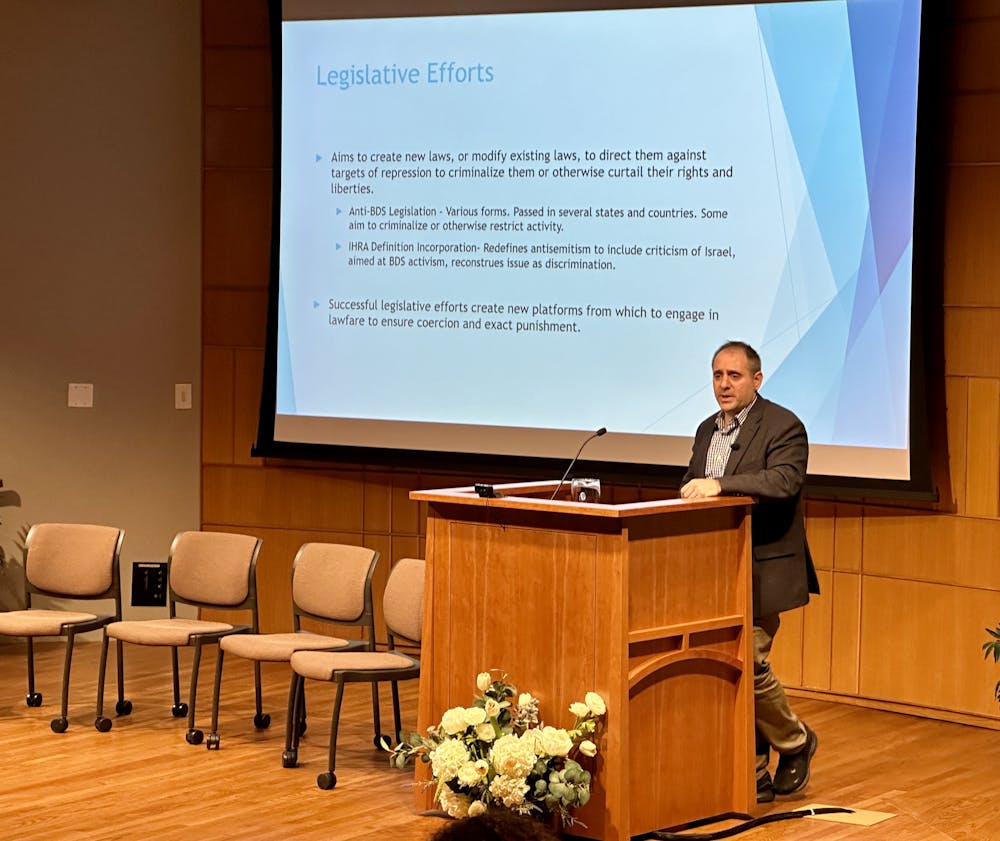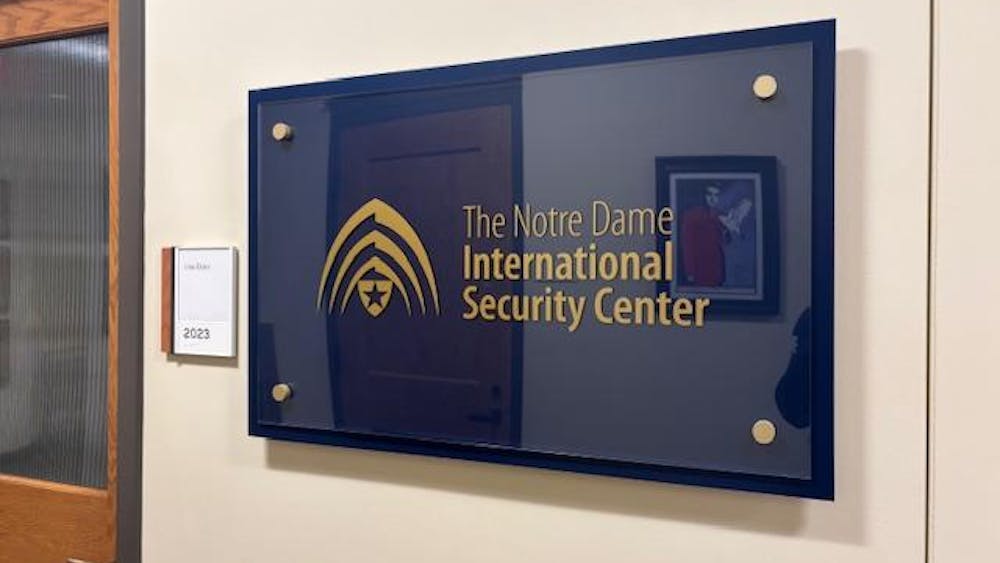A panel of experts, including Palestinian-American Yousef Munayyer, head of the Palestinian and Israel program and a senior fellow at the Arab Center Washington, D.C., met Tuesday afternoon in the Hesburgh Center for International Studies to discuss the historical framework around antisemitism and how it relates to the broader conflict in Gaza.
The event is the second in a two-day series sponsored by the Kroc Institute for International Peace Studies, discussing antisemitism and the struggle for justice and peace in Israel and Palestine.
Nakba means “the catastrophe” and it refers to the ethnic cleansing of Palestinians through displacement, Atalia Omer, professor of religion, conflict and peace studies said in her introductory remarks. “The war didn’t start on October 7, the Nakba started years before Hamas emerged.”
Omer began the conversation by explaining the broader context of antisemitism, including nationalist and imperialist violence. She then introduced Munayyer’s presentation, which focused on the weaponization of antisemitism as part of a transnational repression strategy.
Omer said Munayyer’s talk would focus on explaining how “activists for Palestinian rights in different countries and states across Europe and North America began to find themselves facing a slew of repressive measures and how accusations of antisemitism are mobilized towards silencing debate.”
Munayyer gave an overview of how the Israeli government has attempted to counter the boycott, divestment and sanctions (BDS) movement advocated by Palestinian activists. This movement was organized to pressure Israel to withdraw from occupied territories, remove the barrier in the West Bank and ensure equality for Arab Palestinian citizens of Israel. He described BDS as a “call for civil society” to boycott corporations and institutions, including those in the U.S. and other countries, seen as supporting Israel’s stance toward Palestinians
Munayyer argued the Israeli government has used a three-pronged “mutually reinforcing cycle of smear campaigns, legislative action and lawfare … to associate BDS with terrorism and antisemitism.” This strategy included anti-BDS laws designed to discourage boycotts against Israel.
He explained that following a series of U.S. court rulings that found that anti-BDS laws violated First Amendment rights in 2019, they began to see “quite a deliberate shift in messaging and strategy from this network away from a focus on anti-BDS laws towards a focus on antisemitism.”
“Anti-BDS laws became the center of a battle around freedom in a different way. And it started to bring together not just people who support the rights of Palestinians, but also people who support the right of free expression, even if they don't necessarily care about Palestinians,” Munayyer continued.
In his presentation, Munayyer highlighted evidence of how Israel began to move away from anti-BDS laws towards using antisemitism allegations as a primary tactic to attack BDS following the first amendment rulings. He cited the “Money Trail” report from the Israeli Ministry of Strategic Affairs (MSA) in May 2018 where there were zero mentions of antisemitism, but by September of 2019, there were 286 mentions in a similar report, “Behind the Mask.”
He then talked about how the Israeli Ministry felt an important part of their newly-developed strategy against BDS was to define anti-Zionism as antisemitism and that zionism should be seen as part of the Jewish identity. He showed a video in which a speaker for the anti-BDS network said these policies were the “most important weapons in their arsenal.”
At the end of the talk, following comments and insights from guest professors, Munayyer touched on the political nature of the ongoing Israel-Palestine debate in a polarized political climate like the U.S.
“We’re seeing support for Palestine often on the left side of the political spectrum,” Munayyer said. “And that means opposition to Palestine often has friends on the right side, where you will also find a lot of white supremacists, a lot of European nationalists, a lot of antisemites.”
Munayyer argued the political situation around Israel and Palestine was being utilized by right-wing voices to distract from other policies.
“One of the dangerous ways in which this has operated is by creating … marriages of mutual political interests between people who want to attack Palestinian rights activists, people who are ethnic nationalists and people who are white supremacists here in the United States, who are antisemitic and are happy to use the validation of pro-Israel voices as a cover for their own right-wing policies, their own antisemitism.”










